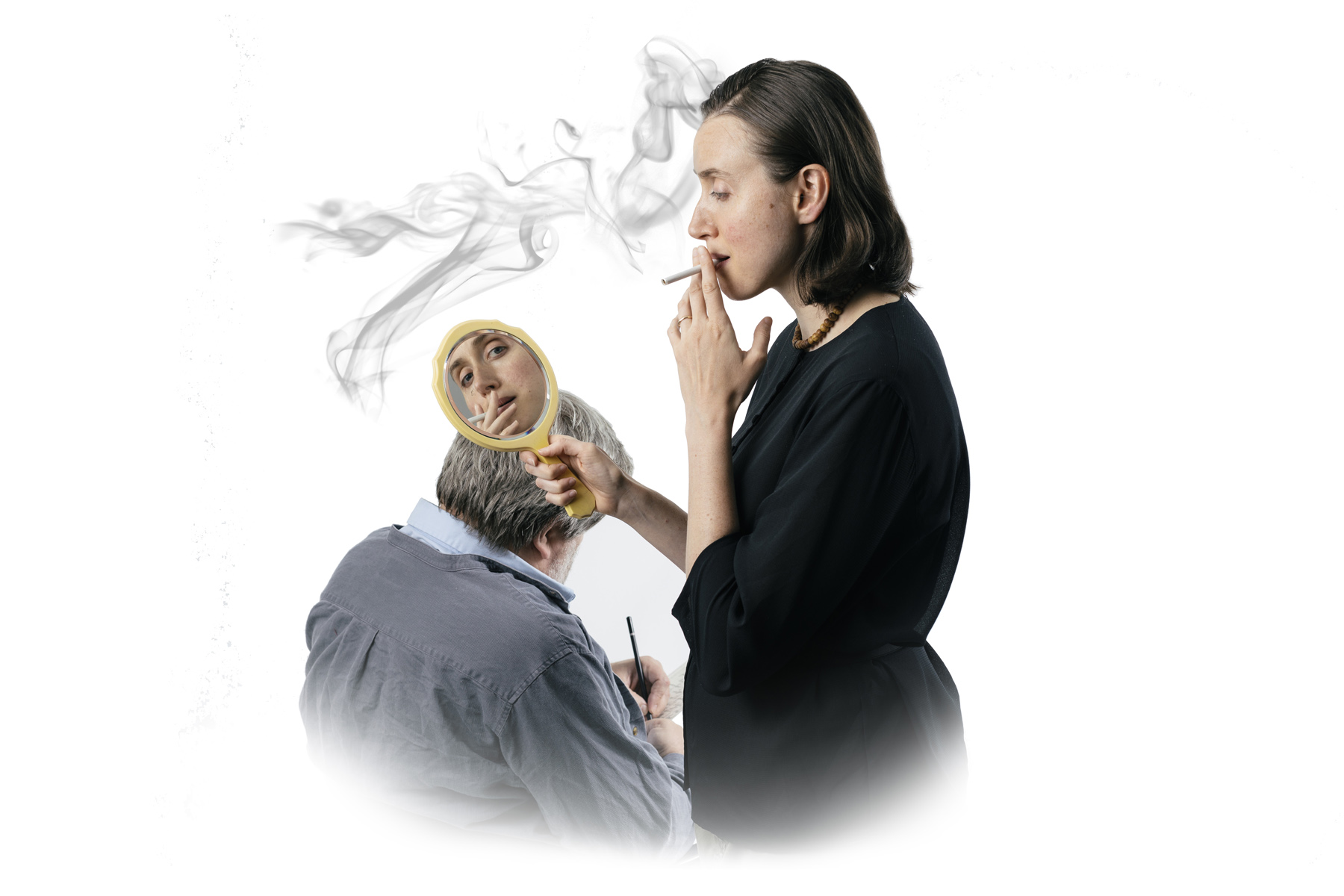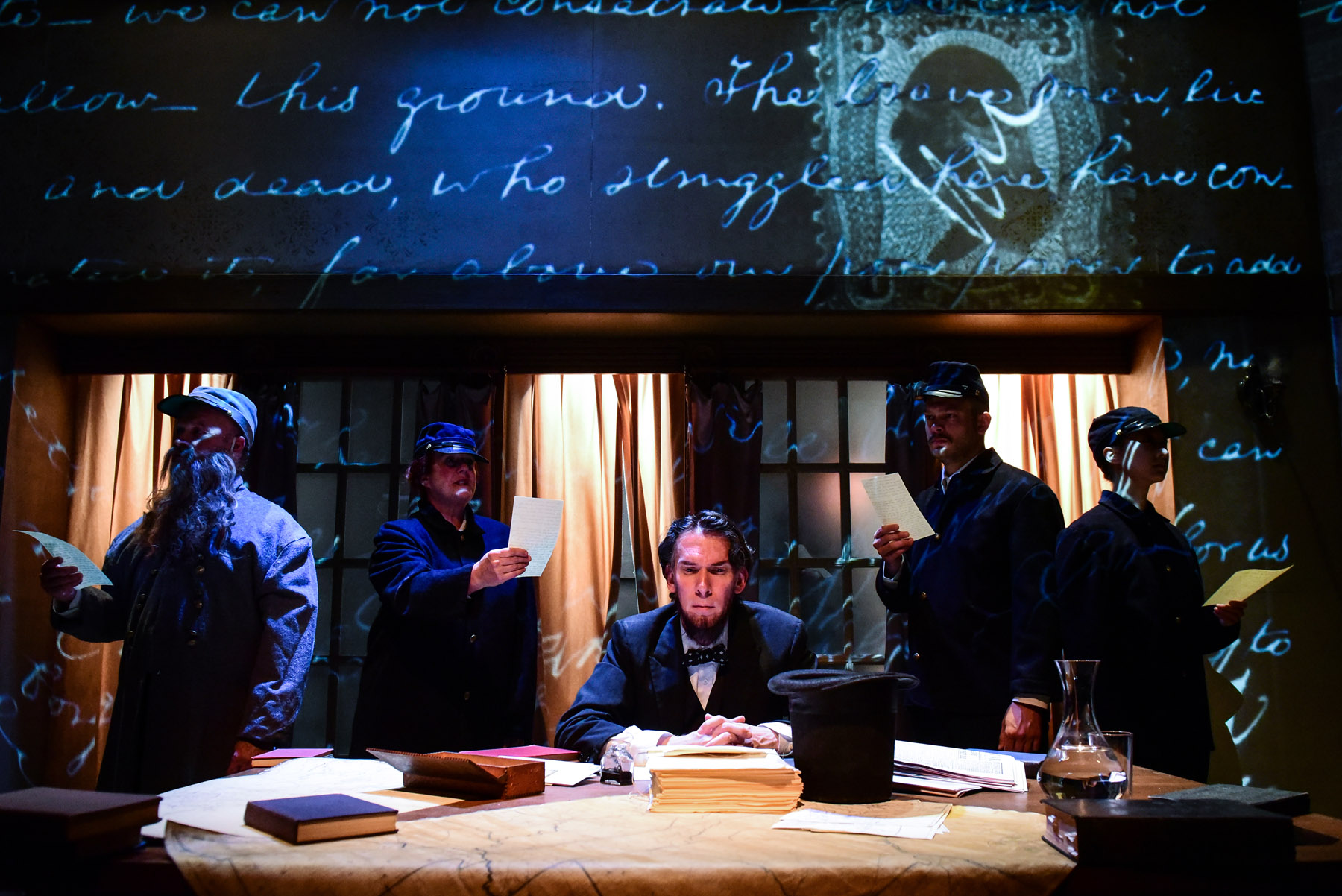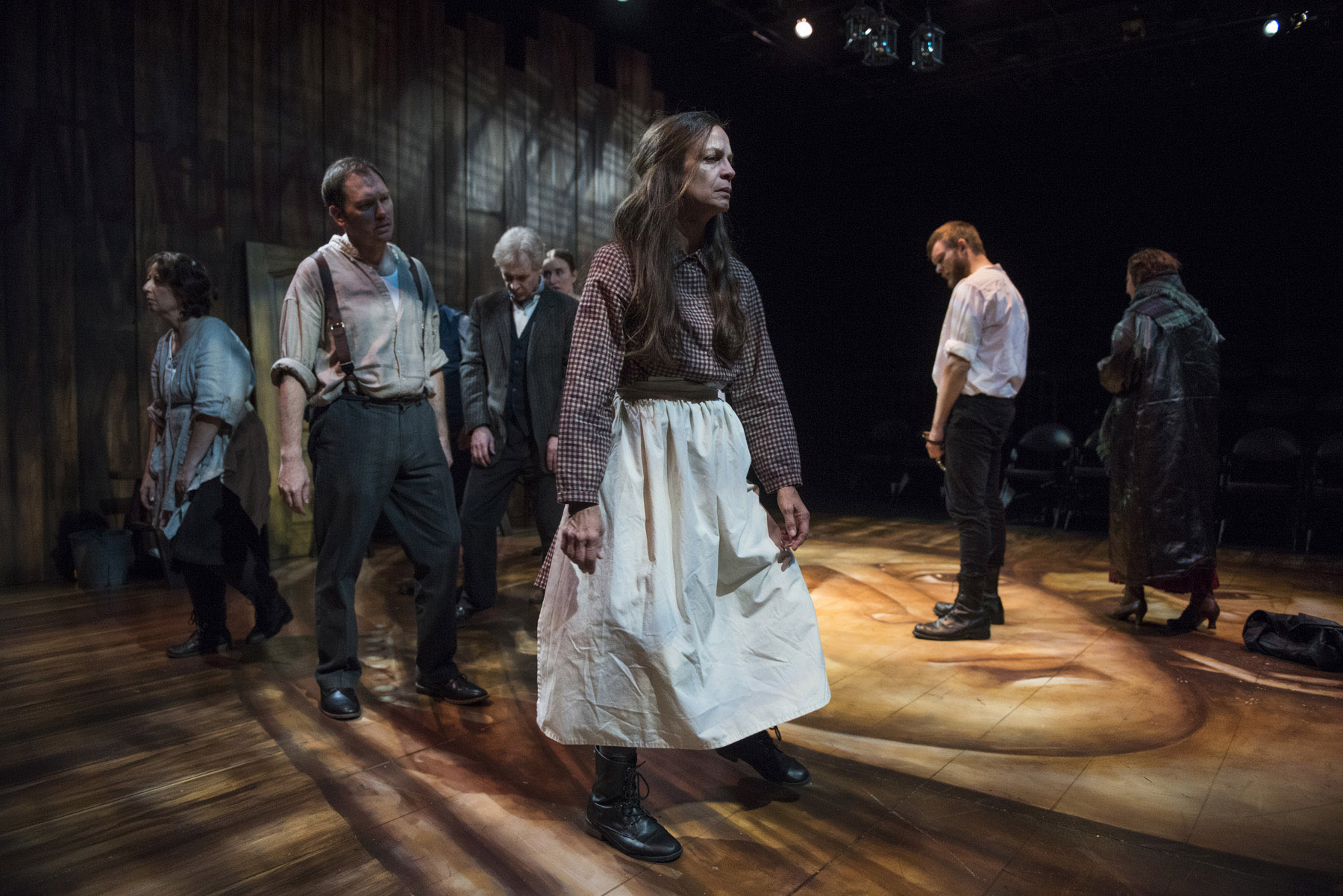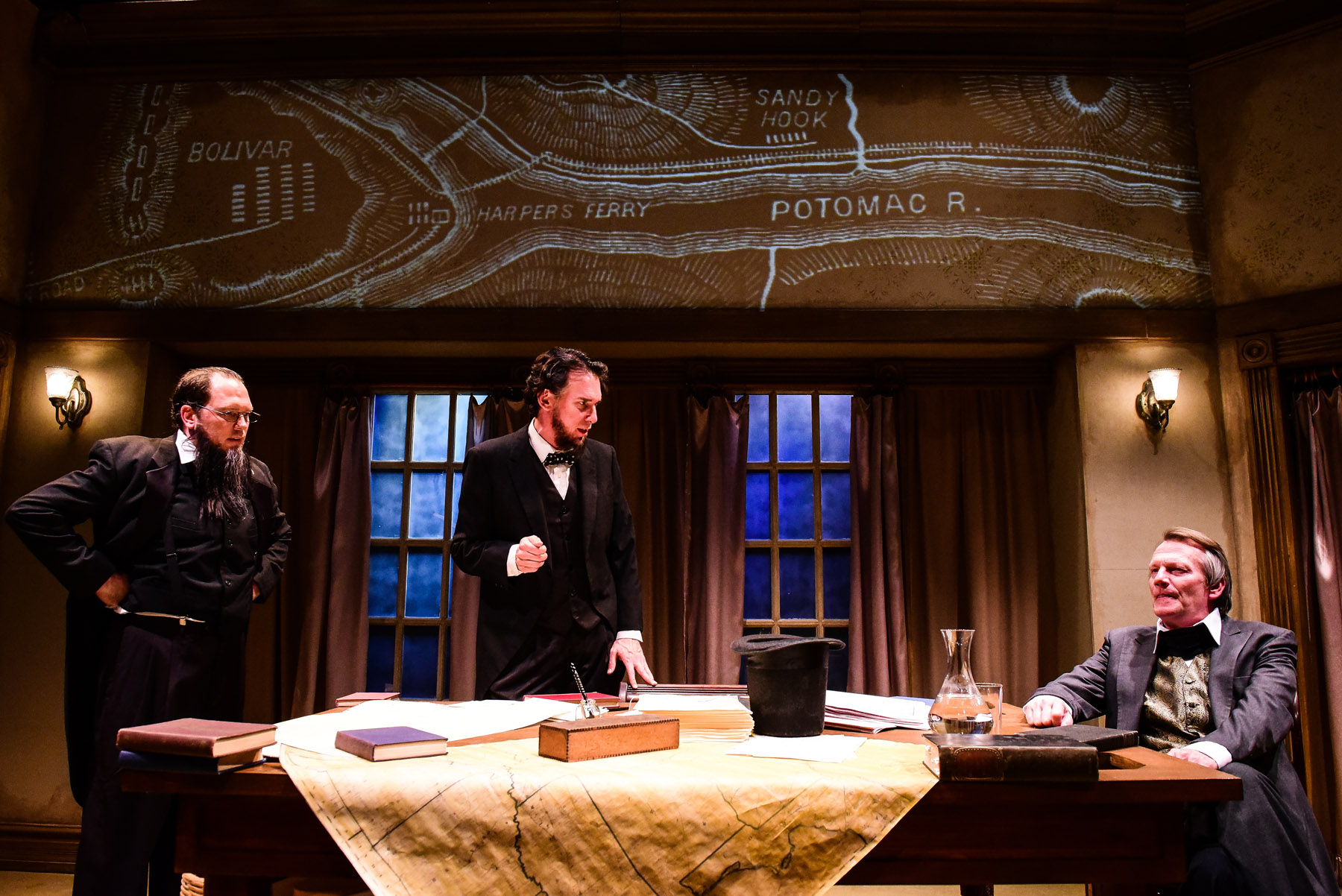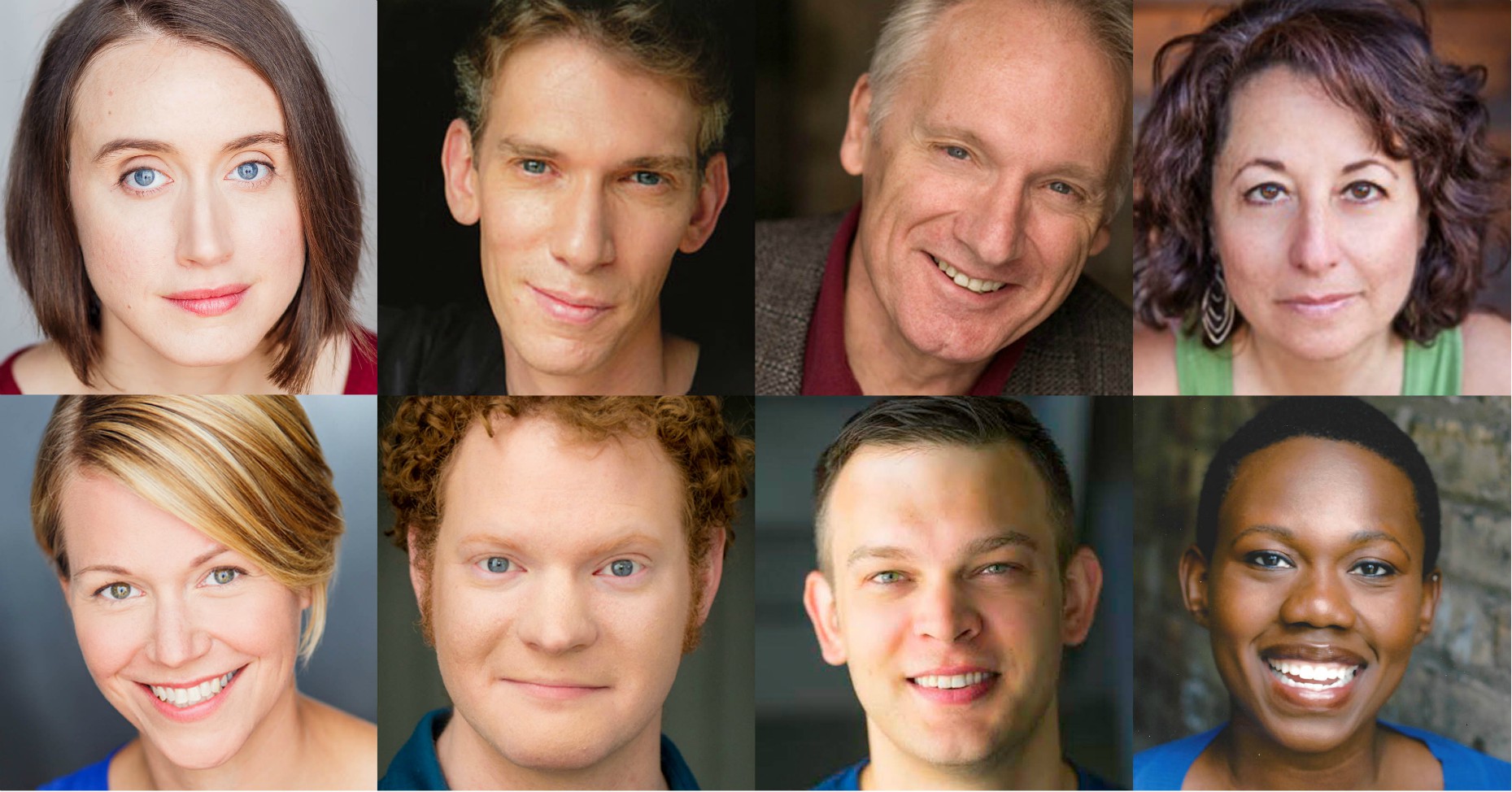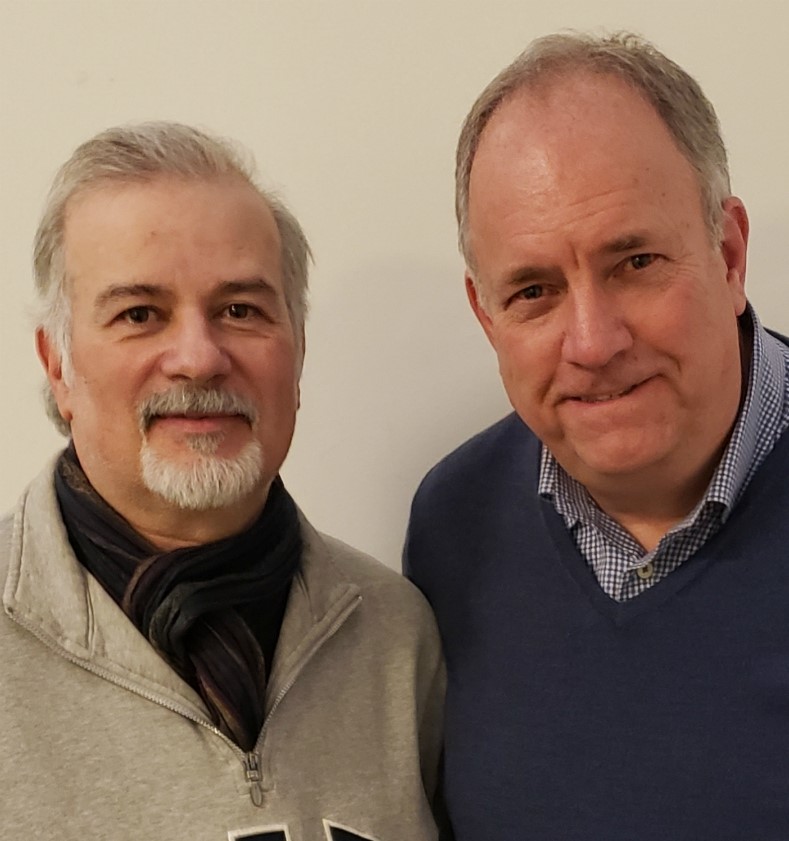LOUIS CONTEY Hannah and Martin-Shattered Globe Theatre
If you are a student of 20th century philosophy, the distinguished works of Hannah Arendt and Martin Heidegger will be familiar. For the rest of us, the Shattered Globe Theatre revival of Kate Foder’s “Hannah and Martin” directed by Louis Contey, is an opportunity to understand the relationship—and passionate love affair—between the young German-Jewish student and her mentor and the impact that the rise to power of the Nazi party had on the course of their lives.
Set at various times from their first meeting in 1924 to the 1946 Nuremberg Trials, the play chronicles Heidegger’s fall from grace after his ill-fated public endorsement of Nazi party ideology and the conflict that Arendt and those around him face as a result.
“Over the course of time,” Contey says, “some plays have more relevance at one point than they do at other points.” “Hannah and Martin” has been source material for Contey’s class work at DePaul since he first saw the original TimeLine production in 2003. The story appealed to his interest in the World War II era and he found the combination in Fodor’s work of flashback, direct address and narrative structure uniquely challenging. Below the surface there are profound parallels about “how the right kind of an education or the wrong kind of an education can have an influential effect on an entire generation of students.”
Contey’s impressive Chicago credits include well over eighty productions and a dozen Jeff nominations. At Shattered Globe the list includes: “A View from the Bridge,” “The Manchurian Candidate,” “Judgment at Nuremberg,” “The Heavens Are Hung in Black” and “Crime and Punishment” in numerous productions at TimeLine, Goodman, Steppenwolf and among others.
There is much more about this fascinating story and the ensemble of the upcoming Shattered Globe Theatre production of “Hannah and Martin” in our CONVERSATION with one of Chicago’s top theatrical directors and educators, Louis Contey. PODCAST
An illicit affair … “Hannah is 18 years old and gets a university scholarship to the University of Marburg and takes Heidegger's seminar class. She's writing about Saint Augustine and he sends her a note on her essay asking her to come to his office. He is looking to find out if there is a real thinking mind behind the words that he read in the essay. He's impressed by it. She comes to see him and he realizes that she is somebody with a little more substance than the average student he is teaching. From that comes the spark of interest and romance. They have a relationship for about a year and a half. In the history of it, Hannah leaves to go to Heidelberg to study with (Karl) Jaspers. In the script, she is sent away by Martin to study with Jaspars presumably to learn more from him, but also, as Hannah surmises, it has something to do with Heidegger’s wife who figures out there's an affair going on and wants her out of the picture.”
Different directions … “(we see) how she gets to know him, how he affects her and influences her in terms of her writing and philosophy and then how they separate. She goes in a different direction philosophically and then when he begins to support the Nazis, she, of course being a Jew, leaves Germany, gets to the United States and begins teaching there. And at some point, after the war's over, the Allies have a committee set up to decide whether or not Heidegger should be allowed to teach again. She writes a letter saying no, and then she is, in the course of the play, asked by Heidegger to come and see her so that they can talk about what happened and whether or not she can offer him support.”
Education and influence … “(the play) has got a lot of interesting ideas. A lot of challenges. It is very much about justice and about mercy. About education and influence—how the right kind of an education or the wrong kind of an education can have an influential effect on an entire generation of students. That's clearly what Kate Fodor is talking about in ‘Hannah and Martin.’”
Great chemistry … “the actor playing Hannah Arendt is Christina Gorman. She is a (SGT Ensemble) member I have worked with in the past. Christina has done a lot of work as a fight choreographer, an intimacy choreographer and at this point in her career is ready for a role like Hannah. It's the biggest part I think she's ever had. She has just the right amount of intelligence and spirit. She questions everything and that's the kind of thinking you want for a role like Hannah Arendt. Larry Grimm is playing Martin Heidegger. Larry and I did “Heavens Are Hung In Black” last season. He played Abraham Lincoln and he and I have done quite a bit of work together. Larry is a very intelligent and well-spoken actor. He is very interesting to work with in rehearsal. Always thinking. Always putting the ideas of the play ahead of his own interpretation of things. The two of them have great chemistry together. They're playing opposite each other in the romance, but also in terms of intellectual equals.”
The ensemble … “Doug McDade who is a (SGT Ensemble) member and playing Karl Jaspars. Daria Harper is playing a Gertrude Jaspers. She is a new (SGT Ensemble) member. Cortney McKenna (SGT Ensemble) is playing Heidegger's wife Elfride. Drew Schad (SGT Ensemble) who is playing Baldur von Schirach was in quite a few plays I have directed and played Lincoln's secretary, John Hay in “Heaven's Are Hung In Black.” Steve Peebles plays Gunther Stern, who is Hannah's first husband and a former student of Heidegger's. He’s also playing the radio announcer who gives voice to the American perspective early in the play. Jasma Pryor is playing Hannah’s student, Alice, a fictional creation in the play. She's there to give a counterpoint to Hannah's point of view about Martin. She's very passionate and very powerful. Jasma was a former (SGT Protégé) and was in ‘Crime and Punishment.’”
Hannah’s humanity … “one of the things that I was always drawn to in the play is how anyone can see themselves giving support to the Nazi regime. How an intellectual could possibly see what the Nazis were doing and lend his voice to it. That is kind of the crux of the play too, is Hannah questioning how Heidegger, in all of his brilliance, is able to give the Nazis any credence. She points out to him that it seems that he's made a child's mistake. He's been taken in by all of the flash and the glory and that is something that is unthinkable and unforgivable from her perspective—a creative mind, a thinking mind shouldn’t be susceptible to that. …she has a bit of a blind spot about Heidegger, but ultimately she sees things more clearly than Heidegger does. I think that her willingness to give Heidegger support has more to do with her own understanding, of her own humanity and of her own willingness to show mercy, whereas Heidegger is unable to see the error of his ways and unwilling to admit that he may have made a mistake. That he was wrong and what his actions did gave the Nazis more power than they probably would have gotten otherwise.”
Comments have been edited for length and clarity.
PHOTOS: Nico Fernandez|Hannah and Martin
Evan Hanover!The Heavens are Hung in Black
Michael Brosilow|Crime and Punishment
Shattered Globe Theatre
presents
HANNAH AND MARTIN
Directed by Louis Contey
April 11-May 25, 2019
THEATER WIT
1229 W Belmont Avenue
Website
Tickets
(773) 770-0333
PODCAST available on Apple Podcasts, Libsyn and Stitcher
ARCHIVE DE USURIS BLOG EMAIL WEBSITE SUBSCRIBE







